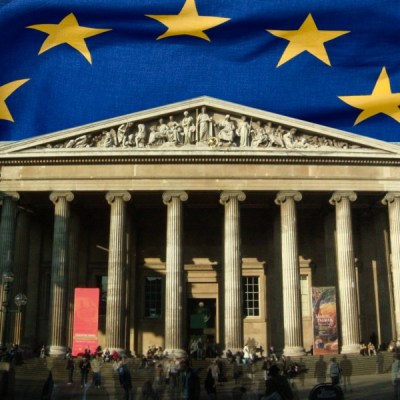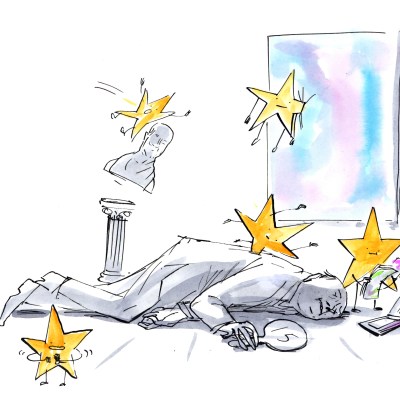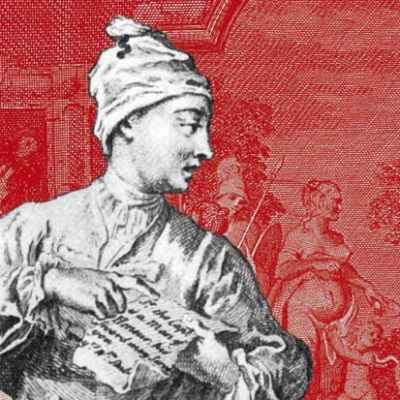Arts organisations and key cultural figures are responding to the news that the UK has voted to leave the European Union. We bring you some of the most recent comments and statements below. Keep an eye out for updates throughout the day.
The Art Fund, which voiced its concern about a possible ‘Brexit’ earlier this week, has issued the following statement from director Stephen Deuchar:
As the national fundraising charity for art, the Art Fund is deeply concerned at the impact leaving the EU will have on culture in the UK, and particularly on its museums and galleries. At one level there is obviously now great financial uncertainty – the effect on European funding streams for the arts, for example uncertainty – but quite as important is the potential effect on the spirit that drives a myriad of international partnerships in the arts. These are driven at heart by the principle of Britain as a collaborative component of, and participant in, a vibrant European culture. We must work hard to keep this spirit alive, regardless of politics.
Museums Association director Sharon Heal commented that the ‘economic fall-out…could have consequences for the sector’ and reiterated the importance of working together ‘with our partners internationally – in Europe and further afield.’ She also emphasised the community role of museums within Britain. ‘Immigration was clearly a huge issue in the referendum and many people have questions doubts and fears on this subject. Museums are ideally placed to host these conversations with their local communities.’
The British Antique Dealers’ Association (BADA) takes a more positive view. The association has issued a statement saying it is ‘imperative that the UK focuses on an expansive, inclusive, open-minded and entrepreneurial stance for the future’. The organisation highlights the difficulties for art and antiques dealers caused by EU regulations, on issues such as Artist’s Resale Rights. The UK represents more than half of the EU market in the field, it says, yet had ‘no ability to oppose the damaging legislation’, and hopes that with new measures in place the art and antiques trade can become a ‘standard bearer’ for a ‘new liberated and progressive approach’.
Creative Industries Federation chief John Kampfner looks ahead at the UK’s cultural role outside the EU. ‘As the UK creates a new identity and a new position on the world stage, our arts and creative industries – the fastest growing sector in the economy – will play an important role’, he writes. ‘It will be vital for all sides to work together.’
Charles Saumarez Smith, Chief Executive of the Royal Academy of Arts, has reflected on the result on his blog: ‘once again, the psephologists and great majority of political commentators have got their analysis wrong’, he writes. ‘[T]he Labour heartlands in the north of England and Wales have chosen to vote against the economic benefits of EU funding and the political benefits of collaboration in favour of the extreme uncertainty and potential political dangers, as well as the intolerance, of a vote for Independence.’
Art law firm Boodle Hatfield has stressed that it is ‘important that the art market now comes together to ensure their voice is heard,’ and that the next few months will undoubtedly be difficult for UK dealers. Addressing several key points – once again, Artist’s Resale Rights, VAT import duty and export licenses – the firm’s report analyses several possible outcomes. Most worryingly for the art world, perhaps, is its verdict on arts funding: ‘EU funding for the arts runs into millions of pounds a year, and has contributed to many important projects,’ said Becky Shaw of Boodle Hatfield. ‘Whilst the UK government will continue to support the arts, it is not unreasonable to expect a complete reassessment of how the arts in the UK are to be funded in the longer term.’
Charles Esche, director at the Van Abbemuseum and editorial director at Afterall, wrote in a Facebook post: ‘Whatever happens from now on, I felt sick waking up in Edinburgh. So many selfish, angry, bad, violent things are a little bit bigger and bolder in the British state today, while human solidarity, generosity and hope for a better, interdependent world have been diminished. I know there is so much worse for so many people across the world, but this corner of North-West Eurasia just got a little less responsible for its past and present, and that doesn’t help anyone.
Figures from the art world have also responded on Twitter.
Culture Minister Ed Vaizey had this to say on David Cameron’s announcement that he is to stand down this autumn:
So sad to see PM going. Utterly decent to the end. Loves his country and will continue to work for our future
— Lord Ed Vaizey (@edvaizey) June 24, 2016
Axel Rüger, director of the Van Gogh Museum in Amsterdam:
https://twitter.com/AxelRuger/status/746233516325646336
Writer and art consultant Bendor Grosvenor:
God help us. Please.
— Dr. Bendor Grosvenor 🇺🇦 (@arthistorynews) June 24, 2016
Liverpool Biennial’s Sally Tallant:
https://twitter.com/SallyTBiennial/status/746235232056008707
Louisa Buck of The Art Newspaper:
Utter desolation. Bleak future for mean little England.
— Louisa Buck (@loubuck01) June 24, 2016
Artist Peter Liversidge:
We should be a worldwide beacon for inclusion & acceptance, we are at the beginning of creating something singular & excluding.
— Peter Liversidge (@peterliversidge) June 24, 2016
Artist and campaigner Bob and Roberta Smith:
On a grim day here is a wonderful image made by a child @royalacademy kids workshop pic.twitter.com/EU3CWk7Wzj
— Bob&Roberta Smith (@BobandRoberta) June 24, 2016
Eastside Projects, Birmingham:
https://twitter.com/eprjcts/status/746252773067472896
This page will be updated throughout the day.


